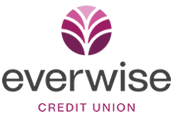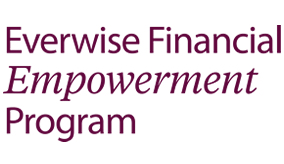Financial Planning for Present and Future
- Details
- Written by The FoolProof Team
- Category: Articles

Sound financial planning creates the foundation for personal and family prosperity and peace of mind. Few of us, however, have received any formal training in the basics of financial planning. It's never too soon or too late to get started.
Financial planning is a hot topic on the Internet. You'll find literally thousands of websites doing everything from hyping their often overpriced or useless "services" to providing genuinely useful and accurate information. Those we recommend are by no means the only sites with reliable, useful info—but they offer a great place to start and meet Everwise Financial Empowerment Program's tough standards for sound, no-hype consumer information.
Online Resources on the Basics of Financial Planning
The best foundation for personal financial planning is having an overview of the process and understanding how the important components in financial planning work together—cash flow management, income tax planning, risk management planning (insurance), investment planning, retirement planning, and estate planning. The following resources provide an excellent place to start.
-
Money Essentials from CNN Money offers short lessons in a variety of topics related to financial planning. Though they are not organized in a coordinated "course", each lesson provides clear, useful discussion. CNN Money does have advertisements but the information is sound and without hype.
-
The Retirement and Money sections of the AARP site provide excellent topic articles in planning for adults of all ages. Though the site is strong in retirement and estate planning, the articles cover all aspects.
-
The Certified Financial Planner Board of Standards site Let's Make a Plan provides resources in the Learning Center on the basics of financial planning, particularly about working with a financial planner.
360 Degrees of Financial Literacy has many topics on financial planning. The many articles cover the various aspects of financial planning at all lifes stages.
Is Using a Financial Planner Right for You?
Would using a well-qualified, professional financial planner help you do a better job of personal financial planning including retirement? Before answering that question, you must understand what kinds of financial planners and services are available, the potential advantages and dangers of using a planner, and how to evaluate individual planners' qualifications.
Many financial planners who help you create an overall plan also make specific recommendations on investment plans and types of investments. This is particularly true of planners who earn all or part of their income from commissions on products they sell to you. Our focus in this article, however, is on overall financial planning, of which retirement planning is an important part.
Do Your Homework
Why do you need to be so careful to do your homework first?
There are two primary reasons:
In most states, lack of regulation means that anyone can call himself or herself a "financial planner," "financial advisor," or "financial consultant" and go into business without any training, experience, or other qualification.
There are several different types of professional certification that knowledgeable, well-trained financial planners may have. Each certification has different criteria for education and experience and different tests. Some types of certification may indicate different emphases in specialization as well.
Types of Credentials for Financial Planners
Among the most common are the following:
CFP stands for a "Certified Financial Planner". Professionals with this certification have a minimum of 3 to 5 years experience, have taken specific courses, have passed a 10-hour, two-day comprehensive exam covering a wide range of financial planning topics, and take continuing education. This certification is issued by the Certified Financial Planner Board of Standards. Planners so certified must agree to abide by the standards set by this board. Many consumer experts consider this certification has the most rigorous standards.
AICPA/PFS stands for a Certified Public Accountant with Personal Financial Specialist qualification. The credentials are issued by the American Institute of Certified Public Accountants. In addition to CPA training and certification, CPAs who have passed a 6-hour exam in six financial planning areas and have met substantial financial planning experience requirements may be certified as Personal Financial Specialists. Continuing education is also required.
ChFC stands for a Chartered Financial Consultant. This professional designation is issued by the American College upon completion of a course of study and examinations. Chartered Financial Consultants maintain certification issued by the Society of Financial Service Professionals. Many of these planners specialize in Insurance and estate planning.
CLU stands for a Chartered Life Underwriter. This professional designation is issued by the American College upon completion of ten college-level courses and examinations in insurance and related fields. Persons with CLU credentials typically specialize in life insurance sales and planning. Chartered Life Underwriters maintain certification issued by the Society of Financial Service Professionals.
CFA stands for Chartered Financial Analyst. This credential and program are administered by the CFA Institute. Professionals holding this designation specialize in portfolio management and investment analysis. Candidates must have three years experience, membership in AIMR, and pass three levels of exams. No continuing education is required for maintaining the credential designation.
How Are Financial Planners Paid?
Financial planners may be compensated by fees only, by commissions, or by a combination of commissions and fees. To avoid potential conflicts of interest on the part of the advisor, many consumer experts recommend using "fee-only" planners. There are, however, many reputable, experienced, able financial planners who are compensated by each of these methods. In selecting a financial planner, ask directly for the way in which they are compensated. Here's a brief rundown of what each method of compensation means.
Fee-only. Financial planners receive compensation only from fees paid by their clients, not from commissions for products sold or from any other source. The fees may be a flat fee for a certain project (such as developing a comprehensive plan for an individual), an hourly fee, a percentage of assets under management, or a percentage of income from investments managed.
Commissions. Financial planners receive their income entirely from commissions on the products they recommend and sell. Financial planners who work for commissions may offer low-cost or "free" planning services, but consumers should take into account the fact that the advisor stands to gain financially from recommendations and be sure that they have full information when making decisions.
"Fee-based" or "Fee-offset." Some financial planners receive both fees and commissions. "Fee-based" typically means that the planner receives a fee from the client and commissions on any products or services sold to that client. If a planner appears to be using "fee-based" to suggest that they are "fee-only," experts recommend avoiding them. "Fee-offset" means that the planner charges a fee that is then subtracted from the cost of a product's or service's sale, should the client purchase the recommended product.
Evaluating and Selecting Financial Planners
The following websites and organizations provide a variety of information and tools, such as checklists of questions to ask prospective financial planners, that can help equip you to make a more informed decision.
The National Association of Personal Financial Advisors (NAPFA) is an organization of "fee-only" financial advisors and planners. Fee-only advisors are the type service recommended by most consumer advocates because such advisors are less likely to have the conflicts of interest potentially present in "commission" or "fee-based" payment arrangements. NAPFA's website provides discussions of what's involved in various financial planning service arrangements and provides a checklist of questions to use in interviewing a Financial Planner.
The Financial Planning Association provides information from and about Certified Financial Planners, also called CFP Professionals. They make their case for how using a Certified Financial Planner can help and provide a thorough checklist you can use to interview potential planners. The site also provides referrals to Certified Financial Planners.
Consumer Guide to Financial Self Defense, from the Certified Financial Planners Board of Standards, offers an informative, succinct discussion of pointers to keep in mind in evaluating and working with a financial planner.
Finding a Knowledgeable Financial Planner
Most experts recommend starting with recommendations from family, friends, and co-workers who have used financial planners successfully. Other professionals, such as accountants or lawyers, with whom you have a business relationship may also have recommendations. Finally, most of the professional organizations that provide credentials or certification also provide referral services; just check their websites above.
Because no two people have the same financial planning needs, you are the best judge of whether or not you need a financial planner. But be an educated judge and consumer of financial services—do your homework, then double check it!














